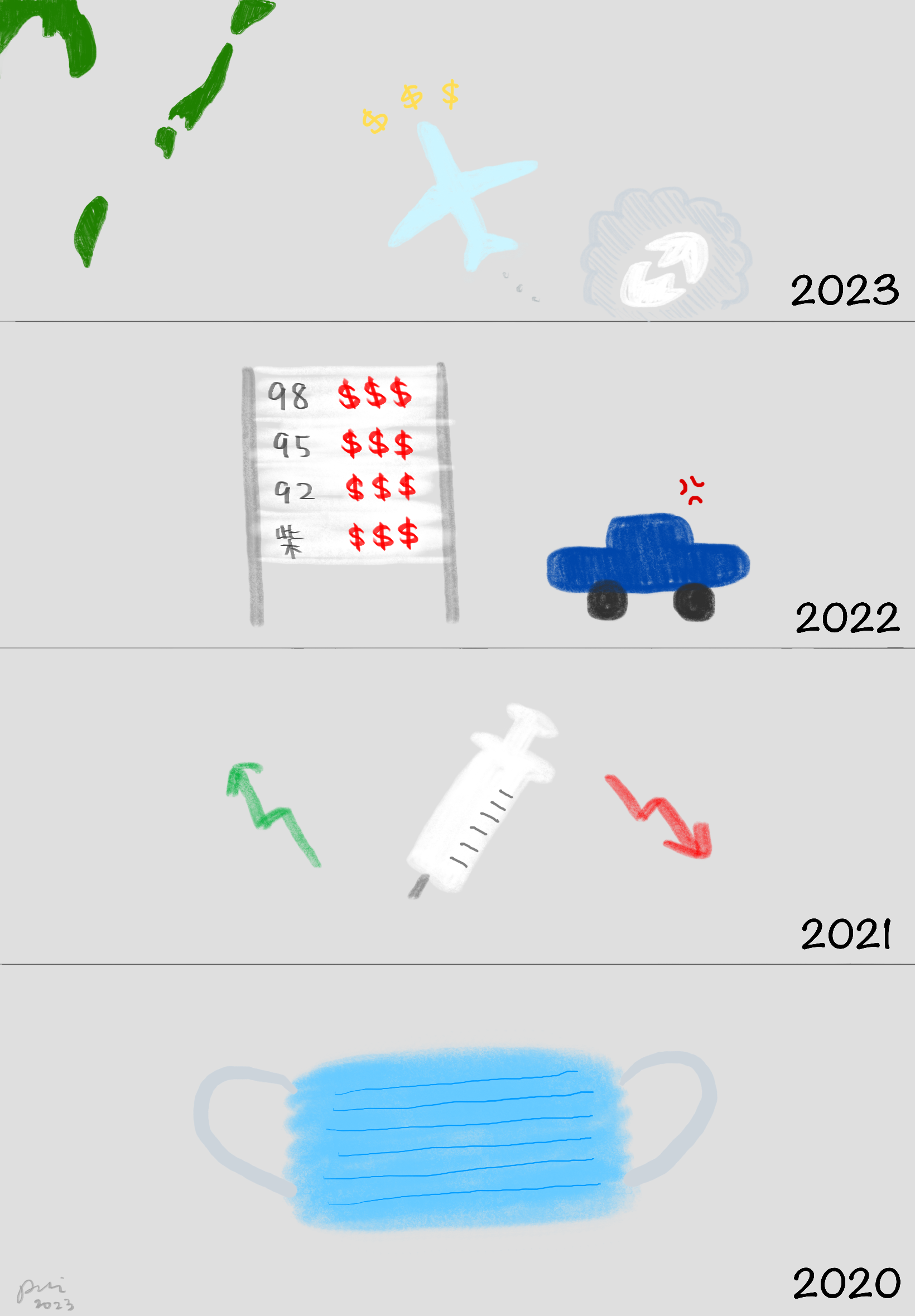Dealing with Crises
Article and Illustration by Yu-Tsen Pai
This graphic, along with a short description, expresses my observation of the “scrambling culture” in Taiwanese society when it encounters some form of crisis.
In 2020, when Covid-19 started, some people rushed to local pharmacies and convenience stores to stock up on tons of facemasks, while others barely obtained enough masks that could last for a week. The country observed empty store shelves and blamed the government for the shortage. The chaos finally eased when the government coordinated a national facemask team to manufacture millions of masks per day and set up the name-based distribution system to limit the number of mask purchases per person.
In 2021, just before the first serious Covid-19 outbreak in Taiwan, many people refused to get vaccinated against Covid-19, arguing that the government was importing ineffective vaccines and leaving them to expire. When an irreversible surge in domestic confirmed cases occurred in Taiwan while other countries were slowly recovering from Covid-19, people scrambled to clinics for vaccines and rapid test kits and blamed the government for not reserving enough vaccines for its citizens. Meanwhile, they claimed that the outbreak was due to the government loosening global entry restrictions.
In 2022, when gas prices rose higher and higher across the globe due to Russia's invasion of Ukraine, the people of Taiwan complained, again. Later in the year, people began to urge the government to open the country’s border for tourism, no longer concerned about the pandemic but making money from foreigners.
This year, 2023, as the globe experiences soaring egg prices, in addition to blaming the government for failing to keep the market price within a reasonable range, many consumers once again stocked as many eggs as they could before merchants implemented a cap on how many cartons a consumer could purchase. On the other hand, people are looking for international travel destinations, mostly in South Korea and Japan, despite soaring prices for flights and travel packages that are comparable to the cost for traveling between Asia and America (40,000-50,000NTD) after the government lifted travel restrictions for nationals.
It is understandable that people experience fear and uncertainty during crises. However, what can we learn from our experiences? Should we scramble for things that we definitely do not need? Or should we leave them for people who are in need so that everyone can survive the crises that society as a whole tries to overcome?
“We are all in this together” is not simply a slogan. During crises (if not in everyday life), people should stay calm, be rational, and take care of one another by being considerate. Before making an accusation, reflect on our own behaviors: Is it always 100% the government’s or the global market’s fault, or do our behaviors also contribute to the current situation?
Works Consulted
DW News. “How Taiwan overcame it's face mask shortage | Coronavirus Update.” YouTube, 2020, https://youtu.be/R-VHZ1-wqfY. Accessed 18 March 2023.
Yang, William. “Is Taiwan learning to live with COVID?” DW News, 2022, https://www.dw.com/en/is-taiwan-learning-to-live-with-covid/a-61878438. Accessed 18 March 2023.
楊文琪. “春節後最長假期引爆出國潮 日本賞櫻票價創天價還一票難求.” 聯合新聞網, 2023,
https://udn.com/news/story/7241/6986948. Accessed 18 March 2023.
